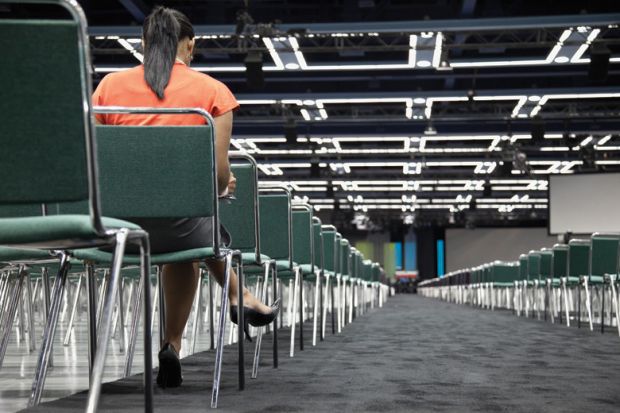“As a PhD student I knew I wanted to be an academic, but was told I would never make it,” recalls Ijeoma Uchegbu, professor of pharmaceutical nanoscience at University College London.
Professor Uchegbu, a pro vice-provost at UCL, was instead advised to become a pharmacist as this was the career pathway that ethnic minority women studying at the School of Pharmacy followed.
“There were no ethnic minority staff there 20 years ago, so it’s good that university students see more diversity in academic staff,” she adds.
Uchegbu is, however, one of the few black women to reach the upper ranks of academia. According to a Runnymede Trust report last year, only 85 professors are black, of whom just 17 are women.
As part of the Equality Challenge Unit’s Race Equality Charter initiative, Uchegbu has led efforts to help more black and ethnic minority academics win promotion at UCL.
Her institution was one of the first eight universities to be presented with their charters at a ceremony in Westminster on 20 January, whose guest of honour was civil rights campaigner Baroness Lawrence of Clarendon.
To receive the award, universities must analyse data on the recruitment, progression and seniority of ethnic minority staff, as well as information on the attainment gap of non-white students.
“Some of the numbers were horrifying,” admits Uchegbu.
For instance, black staff were far less likely to get promoted at UCL than white employees, an analysis of historic data revealed.
“If you include postdocs, we have around 4,000 staff here and around 25 per cent were promoted over the course of time,” she says.
“If you were a black academic, your chance of promotion was about a third of the rate for white academics and for Asian staff it was better, but still under par,” she adds.
That analysis made tough reading for senior staff, Uchegbu says.
“Looking at promotion, how can we defend a position where we recruit people because they are good enough, but they do not progress to the same extent?” she says, admitting that UCL “did not know what was wrong”.
To address the problem, ethnic minorities will be partnered with a senior academic “sponsor” in addition to their mentor, who will advise and support their professional development.
“There are often times when senior academics cannot go to conferences or meetings, so they might send someone – their ‘protégé’ – who they know is capable and can do the job,” Uchegbu says.
The analysis of institutional data will also help to reduce “unwarranted variations” in success rates between white and BME staff, explains Laura Serrant, professor of community and public health nursing at the University of Wolverhampton.
Institutions should be aware if ethnic minority staff are consistently less likely to be shortlisted for interview, recruited or promoted to higher levels, says Serrant, a patron of the new charter.
“It’s not just about reducing these deficits, but making sure positive things happen and opportunities are created,” she adds.
Being one of the few black female professors in the UK means that Serrant has taken on a larger public role than she initially expected, with students even asking to have photos taken with her, she explains.
“I lost my [relative] anonymity and get noticed wherever I go, so I had to make a choice whether to stand and hide or stand up and talk [about race issues],” Serrant explains.
“It’s important for me to go to graduation ceremonies to be seen,” she adds.
At the ceremony, opinion was divided on the explanations for the lack of senior black university staff.
Kevin Hylton, professor of equality and diversity in sport at Leeds Beckett University, says “covert patterns of behaviour” need to be recognised. There is a “prevalence of white privilege” in higher education, where there are “glass ceilings for black and minority ethnic staff”, he adds.
The attainment deficit of black undergraduates, who are far less likely to gain a first or a 2.1, is another major issue, others say.
Whatever the reasons, engaging with the Race Equality Charter scheme is a useful exercise for institutions, even for those not selected for the charter, says Stacy Johnson, associate professor in healthcare leadership at the University of Nottingham.
“It was not a tick-box exercise – it was something that needed genuine self-reflection.”
POSTSCRIPT:
Print headline: Academy faces ‘horrifying’ figures on BME promotion
Register to continue
Why register?
- Registration is free and only takes a moment
- Once registered, you can read 3 articles a month
- Sign up for our newsletter
Subscribe
Or subscribe for unlimited access to:
- Unlimited access to news, views, insights & reviews
- Digital editions
- Digital access to THE’s university and college rankings analysis
Already registered or a current subscriber? Login





